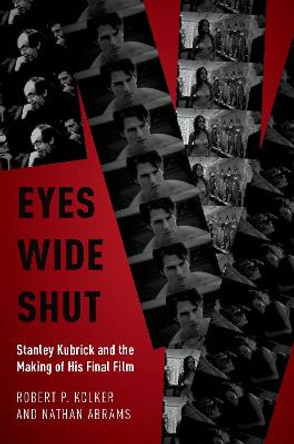There have been two common assumptions about Stanley Kubrick: that his films portray human beings who are driven exclusively by aggression and greed, and that he pessimistically rejected meaning in a contingent, postmodern world. However, as Kubrick himself remarked, "A work of art should be always exhilarating and never depressing, whatever its subject matter may be." In this new interpretation of Kubrick's films, Julian Rice suggests that the director's work had a more positive outlook than most people credit him. And while other studies have recounted Kubrick's life and production histories, few have offered lucid explanations of specific sources and their influence on his films. In Kubrick's Hope, Rice explains how the theories of Freud and Jung took cinematic form, and also considers the significant impression left on the director's last six films by Robert Ardrey, Bruno Bettelheim, and Joseph Campbell. In addition to providing useful contexts, Rice offers close readings of the films, inviting readers to note details they may have missed and to interpret them in their own way. By refreshing their experience of the films and discarding postmodern cliches, viewers may discover more optimistic themes in the director's works. Beginning with 2001: A Space Odyssey and continuing through A Clockwork Orange, Barry Lyndon, The Shining, Full Metal Jacket, and Eyes Wide Shut, Rice illuminates Kubrick's thinking at the time he made each film. Throughout, Rice examines the compelling political, psychological, and spiritual issues the director raises. As this book contends, if these works are considered together and repeatedly re-viewed, Kubrick's films may help viewers to personally grow and collectively endure.
About the AuthorJulian Rice, now retired, was professor of English at Florida Atlantic University. His books include Black Elk's Story (1991), Deer Women and Elk Men (1992), and Before the Great Spirit (1998).
ReviewsBlow-by-blow description of the complexities of 2001: A Space Odyssey and Eyes Wide Shut helps uncover the Jungian sources of Kubrick's perspective. * Zentralblatt fur Geologie und Palaontologie *
Rice writes about the films with care and specificity. Kubrickians should read this book, whether or not they agree with it....Recommended. * CHOICE *
This fresh interpretation, which runs counter to much of the scholarship on Kubrick, is informed by Rice's deep knowledge of the filmmaker's work. Erudite and wide ranging, his book considers the full scope of literary, philosophical, and psychological influences that give meaning to Kubrick's films....Recommended for film collections in academic and public libraries. * Library Journal *
Book InformationISBN 9780810862067
Author Julian RiceFormat Hardback
Page Count 296
Imprint Scarecrow PressPublisher Scarecrow Press
Weight(grams) 649g
Dimensions(mm) 236mm * 160mm * 28mm









